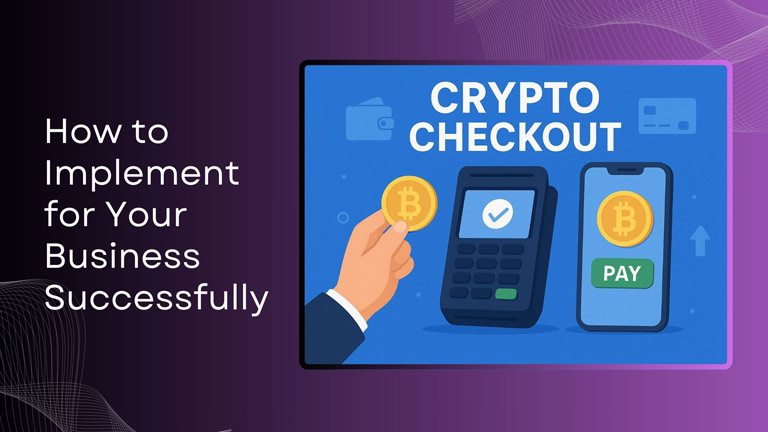
Crypto Checkout is an online payment gateway system enabling firms to accept digital money like Bitcoin, Ethereum, and stablecoins directly from customers. It is important as it expands your payment options, taps global customers without the complexity of historical banking limitations, and minimizes charges like credit card fees or foreign exchange. To most businesses, it is also a spontaneous response to changing customer expectations, especially for those who value speed of transactions, enhanced security, and privacy of online transactions or at their physical outlets.
Integrate Seamlessly with Existing Workflows
Your sales process shouldn’t experience bottlenecks as a result of integration. Simple plugins for Shopify, WooCommerce, Magento, and other platforms are available on the top crypto checkout platforms. Strong APIs enable developers to integrate cryptocurrency payments straight into their checkout process for custom systems.
The goal is to make paying with cryptocurrency as easy and quick as using a credit or debit card. That cuts down on cart abandonment and ensures new crypto payers aren’t overwhelmed. Before you go live, provide receipts, payment confirmations, and stock updates, all of which work as they should by testing the integration thoroughly.
Plan for Volatility and Regulatory Adaptations
If you are going to hold crypto rather than convert it outright, you must include price volatility in your calculations. Sudden dips can eliminate profit margins, while sudden spikes worsen accounting. One frequent fix for this is to auto-convert transactions to stablecoins, which are of value relative to the US dollar or other big currencies.
Compliance is equally critical. Regulatory changes, in particular regarding taxation and reporting, are also changing rapidly. Most jurisdictions will require you to keep a record of what the cryptocurrency was worth when you received it and will require that you report any gains or losses once it is subsequently sold or exchanged. Maintain accurate and current records of all transactions, the value of that cryptocurrency, equivalent at the time the exchange was made in the fiat currency, as well as fees charged. This guarantees compliance with tax reporting and audit preparedness without incurring the excessive fees that are incurred when tax is not adhered.
Choose the Right Payment Processor
Choosing the right processor is the most critical component of a successful crypto payment plan. For a smooth crypto-enabled checkout, select a site that will process a broad range of cryptocurrencies, not just Bitcoin. Multiple-coin capabilities enable you to support customers wanting to use alternative digital currencies, stablecoins, or more recent tokens that are gaining traction. The processor should be conveniently integrated into your existing POS or e-commerce platform without extreme changes in your business processes.
Train Your Staff and Update Policies
Staff training is a must to avoid errors and crypto scams. Staff must be educated on verifying incoming payments, refunding where needed, and dealing with common customer questions. Since crypto transactions are irreversible once confirmed, refund policies need to be clear, preferably by providing store credit or a new transaction in crypto.
You need to define which digital currencies are accepted, the payment thresholds, and what action to take if the transaction is pending for an excessively long period. Updated policies protect the business and customers.
Crypto Checkout is not simply a technology upgrade; it’s a way to position your business ahead of competitors. Cryptocurrency payments can be integrated with instant cross-border settlement, which removes the delays associated with international bank payments. This allows one to provide goods or services faster, making them happier and loyal buyers.


